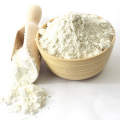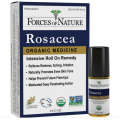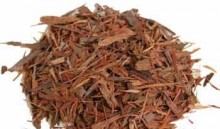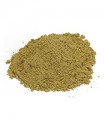 Loading... Please wait...
Loading... Please wait...- Home
- About Us
- Shipping, Returns & FAQ's
- Contact Us
-
For Your Information
- Canadian Customers Have a Choice if Shipping Via UPS
- Aura Cacia Homemade Aromatherapy Recipes
- Bella Nella Altered Art & Paper Crafts Blog
- Forms of Herbal Preparations
- Laundry Tips To Conserve Energy Blog from The Laundress
- The Story of Frontier Natural Products Co-Op
- Sovereign Silver Hydrosol and Aloe Protocol Stops Downward Spiral of Gut Dysbiosis
- Disclaimers
- Recommended Links
- RSS/Recent News
- The Story of Typhoon Housewares
- Reviews/Testimonials
- Raw Ingredients for Mfg
Pau d'Arco Inner Bark Wildcrafted Bulk
Product Description
Pau d'Arco bark has active principles, mainly lapachol, quercetin and other flavonoids. The dried inner bark of Pau d'Arco can be used as a tea which has a taste that is just a little bit harsh, and a color that may remind you of sepia-toned photographs. Some claim that it is useful in managing diabetes. It is also suggested that this plant is useful in treating other medical conditions, amongst which are fibromyalgia (FMS) and lupus (SLE). This herbal tea is used by many during the cold and flu season, and is a remedy for smoker's cough. Another medicinal use of Pau d'Arco is as an expectorant: to promote "coughing up" by the lungs in order to free mucus and contaminants that had been lodged there.
Pau d'Arco tea or tincture concoctions have reportedly had beneficial effects for cancer patients, anywhere from alleviation of chemotherapy symptoms to complete remission of tumors. According to Dr. Daniel Mowrey, who has become somewhat famous in the area of Pau d'Arco supporters, anti-cancer benefits can be had from Lapacho (the active compound), without any side effects being noticed (but see cautions page for potential side effects). Taheebo, another name that is used for this tea, is suggested to have been helpful to many.
Candida Albicans, a fungus which causes yeast infections, has also been treated by the Pau d'Arco herb. Aside from patients dealing with candida problems, those with other issues involving fungi or yeasts -- such as Aspergillus -- may also be helped due to the antifungal nature of lapachol. Moreover, it is claimed that certain bacteria are affected by this compound, so help may also be available for people with issues of that nature, including: C. diff, Staphylococcus aureus, Streptococcus, Helicobacter pylori (common cause of stomach ulcers), Brucella, tuberculosis, pneumonia, and dysentery.
Active compounds: Bulnesene, Sesquiterpenes patchoulol
Reference
paudarco.org
Pau d'Arco: Immune Power from the Rain Forest by Kenneth Jones
Healing Power of Pau D'Arco by Walter Luebeck
Botanical Name: Tabebuia avellanedae/impetiginosa
Origin: Brazil
Notes: CK Kosher. Non-irradiated. Volume: 8.5 Cups/lb. aka Ipe Roxo, lapacho, purple lapacho, trumpet bush and taheebo
Specifications are subject to change without notice.
You Recently Viewed...
Currency Converter
Choose a currency below to display product prices in the selected currency.



























